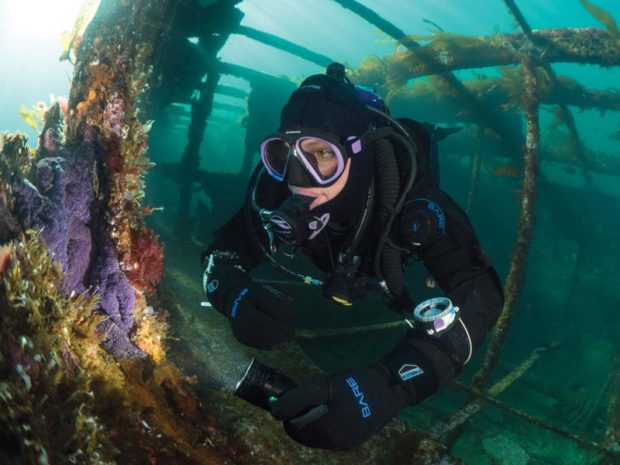Situational Awareness

By Steve Lewis
A few years back I wrote a book called “The Six Skills…” One of the skills mentioned in it was Situational Awareness. At the time, Situational Awareness (SA) seemed like a neat catch-all phrase, and it still sounds good as far as it goes. I wanted something that sounded more scholarly than say, “being distracted.”
However, when the time comes to update the book and publish a new edition — which someone is bugging me to get done for this fall — I might rename that chapter ‘Paying Attention’, or ‘Mindfulness’ …or just keep it ‘Situational Awareness’. Of course, when it comes to finding the best ways to save your arse when you and your mates are out for a dive, each of those options is just a different label for the same thing; just like complacency, carelessness, negligence, and bravado are suitable synonyms for the same issue and all exist in the same family of human error.
It’s said that SA is the chess-player’s skill: knowing what’s going to happen not only after the next move, but also two, three, or a handful of moves after that. Mindfulness — a popular topic in the self-help market right now — is the same skill with the same result (albeit approached and perfected in a slightly different manner). And paying attention is really all about focus and concentration: again, the same skill perhaps developed using a different method, same result.
So, for simplicity’s sake let’s just call what a diver should develop to stay safe “awareness”, and agree that having some would be good; having lots would be better; being filled up with it would be the best.
Let’s also agree on the definition that awareness — both in water and out of it — is a choice. We can choose to be aware or not. And given what can happen when we’re unaware, it’s the right choice; otherwise, survival comes down to luck or good fortune: a lucky roll of the dice.
Obviously when we dive, it would be good to have the foresight to project what’s happening now into the future. I can think of a dozen examples, from watching your buddy’s respiration rate (that stream of exhaled bubbles heading for the surface ought not to be a constant stream), and his or her response time to a hand-signal (it should be immediate, distinct, unequivocal), to listening for the reassuring click of your rebreather’s solenoid opening at the appropriate time (the same goes for it shutting off).
This awareness, this focus on the present and what all of our senses are telling us, helps to protect us from nasty surprises.
Here’s a simple checklist that I find useful at every stage of diving, planing to dive, or sharing advice with other divers.
First understand what the baseline is. (A baseline is normal activity: noise; motion; actions; a series of things unfolding as they should in an anticipated order; everyday things that signal when all is well and is going to stay that way.)
The noise of a window being pried open when you’re alone in your house at night is, for example, a deviation from the baseline. The sound of a car horn as you navigate a grocery store parking lot is a deviation. The sudden erratic movement of your dive buddy’s light is a deviation.
It really does not matter how you develop an awareness of the baseline (reading and rereading a manual, following a best practice, or deep meditation and yoga). We all have our own foibles and each of us learns in a different way. It’s up to us to find the one that works for us.
For what it’s worth, whenever possible, I follow a plan known to work, established best practices, conservative limits, and meditate on those things both before and during my dive. Your mileage may vary and that’s fine. All that matters is that you have a strong and informed understanding of the way things should be.
Next is to work on being able to sense immediately when something falls outside that baseline; something that doesn’t feel, smell, sound, taste, or look right. You might also add a sixth-sense warning to that list: a “spidey sense” that things are not as they should be.
Usually, something that does not conform signals a threat. But not always.
The final step is to respond appropriately.
True awareness, mindfulness, focus, and concentration allow us to separate threats from background noise; to work out quickly any deviations from the norm that have a dangerous potential from any deviations that are superficial and unimportant; to filter what’s important out from simple distractions.
This allows us to control our response – in essence, for any response to be unemotional, appropriate, effective, and rapid.
Developing the awareness skill takes time, but — with very few exceptions — we are all capable of its mastery. And without exception, developing and refining it will make every diver a better diver.







